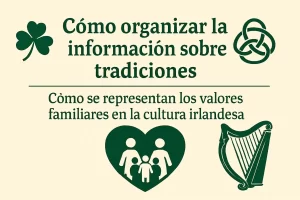Desafíos de la igualdad de oportunidades: Claves para promover la justicia social

Barriers to Equal Access to Social Justice
When it comes to social justice, ensuring equal access for all individuals is crucial for building a fair and inclusive society. However, numerous barriers continue to impede this objective, hindering marginalized communities from fully experiencing the benefits of social justice.
1. Systemic Discrimination
One of the most pervasive barriers is systemic discrimination, which perpetuates inequality through biased policies, practices, and attitudes. These systemic issues create unequal opportunities and outcomes for marginalized groups, undermining their access to social justice.
2. Economic Disparities
Economic disparities contribute significantly to unequal access to social justice. Limited access to resources, education, and employment opportunities perpetuates cycles of poverty, leaving many individuals unable to fully participate in and benefit from social justice initiatives.
3. Lack of Representation
The absence of diverse voices in decision-making processes and leadership roles poses a significant barrier to equal access to social justice. Without representation, marginalized communities may find their needs and experiences overlooked, further perpetuating inequities.
4. Legal and Regulatory Challenges
Barriers within the legal and regulatory systems can impede access to social justice. Discriminatory laws and bureaucratic hurdles can prevent individuals from seeking recourse and accessing the protections and opportunities they deserve.
In addressing these barriers, it is essential to recognize the intersectionality of factors that contribute to unequal access to social justice. By actively identifying and dismantling these barriers, society can move closer toward achieving a more equitable and just environment for all.
Obstacles to Achieving Social Justice Equality
When striving for social justice equality, it is imperative to acknowledge and address the obstacles that stand in the way of achieving this noble goal. Several interconnected factors contribute to the persistence of inequality and injustice in society.
One major obstacle is systemic discrimination and prejudice, which permeates various aspects of social structures and institutions. This pervasive bias often results in unequal treatment and opportunities for marginalized groups, hindering their ability to fully participate in and benefit from societal resources.
Another significant challenge is economic inequality, which exacerbates social disparities and limits access to essential services and resources. The unequal distribution of wealth and the perpetuation of poverty further entrench social injustice, making it difficult for individuals to break free from cycles of deprivation and discrimination.
Moreover, cultural barriers and stereotypes contribute to the marginalization and stigmatization of certain groups within society. These negative perceptions can lead to exclusion, limited representation, and a lack of recognition for the diverse experiences and contributions of marginalized communities.
Legal and political obstacles also play a crucial role in perpetuating social injustice. Inadequate laws, policies, and enforcement mechanisms can reinforce unequal power dynamics and systemic oppression, making it challenging to ensure equal rights and protections for all members of society.
The lack of access to quality education and healthcare is yet another formidable barrier to achieving social justice equality. Disparities in these fundamental areas further entrench inequality and limit opportunities for individuals to realize their full potential and well-being.
Environmental factors also pose considerable challenges to social justice equality. Communities disproportionately impacted by environmental degradation and pollution often face health risks and economic burdens, exacerbating existing social inequities.
Furthermore, the perpetuation of gender-based discrimination and inequality presents a significant hurdle to achieving social justice equality. The persistence of gender stereotypes and biases constrains the opportunities and freedoms of individuals of all genders, contributing to broader societal injustices.
In addition, systemic racism and xenophobia present pervasive obstacles to social justice equality, perpetuating discrimination and exclusion based on race, ethnicity, and nationality. These unjust practices undermine the principles of equality and fairness within society.
The intersectionality of these obstacles further complicates efforts to achieve social justice equality, as individuals often face multiple layers of discrimination and marginalization based on their unique identities and circumstances.
In conclusion, addressing these multifaceted obstacles is essential to advancing social justice equality and creating a more equitable and inclusive society. By dismantling these barriers and working towards comprehensive reforms, meaningful progress can be made in fostering a society where every individual has the opportunity to thrive and contribute to the common good.
Challenges in Promoting Equal Opportunities for Social Justice
When it comes to promoting equal opportunities for social justice, there are numerous challenges that need to be addressed. These challenges arise from deep-rooted societal issues and systemic inequalities that have persisted for generations. It is essential to confront these obstacles in order to create a more just and equitable society.
One of the key challenges is the pervasive discrimination and bias that exists within various institutions and social structures. This discrimination can manifest in various forms, including racial, gender, and economic inequality, making it difficult for marginalized groups to access the same opportunities as their privileged counterparts.
Additionally, the lack of access to quality education and resources is a significant barrier to achieving equal opportunities. Many individuals from marginalized communities face educational disparities that limit their ability to compete on an equal footing in the job market or access essential services. Addressing these disparities is crucial for fostering a more equitable society.
Furthermore, economic disparities and lack of access to healthcare and basic necessities contribute to the challenges in promoting equal opportunities. Without access to resources and support, individuals from disadvantaged backgrounds face significant barriers in achieving social mobility and economic independence. These barriers perpetuate cycles of poverty and inequality.
Another critical challenge is the prevalence of systemic racism and implicit bias within various societal structures. These biases often result in unequal treatment and opportunities for marginalized communities, hindering their ability to thrive and succeed. Overcoming these deeply ingrained biases is essential for creating a more just and inclusive society.
Moreover, the lack of representation and inclusion in decision-making processes exacerbates the challenges in promoting equal opportunities for social justice. Without diverse voices at the table, policies and initiatives may not adequately address the needs of marginalized communities, perpetuating existing inequalities.
Legal and policy barriers also pose significant challenges in achieving equal opportunities for social justice. Many existing laws and policies perpetuate inequality and discrimination, creating hurdles for marginalized individuals to access the same rights and opportunities as others.
Historical and cultural prejudices further contribute to the obstacles in promoting equal opportunities for social justice. These prejudices often shape societal perceptions and attitudes, creating additional barriers for marginalized groups to fully participate and thrive in society.
In addition, the intersectionality of various forms of discrimination presents complex challenges in promoting equal opportunities. Addressing the unique needs and experiences of individuals who face multiple layers of oppression requires a nuanced approach and a deep understanding of intersecting inequalities.
Furthermore, the lack of awareness and understanding of privilege and oppression hinders progress in promoting equal opportunities for social justice. Educating individuals and communities on the impacts of privilege and oppression is essential for fostering empathy and dismantling barriers to equality.
It is evident that addressing these challenges requires a comprehensive and concerted effort from all sectors of society. By acknowledging and confronting these obstacles, we can pave the way for a more equitable and just future for all.No hay problema, aquí está el contenido SEO para el H2:
Struggles in Ensuring Equal Access to Social Justice Opportunities
Ensuring equal access to social justice opportunities remains a significant challenge in today’s society. Despite ongoing efforts to promote equality and fairness, barriers persist that hinder the full participation of all individuals in social justice initiatives. These struggles encompass various aspects, including economic disparities, systemic discrimination, and limited access to essential resources.
One of the primary obstacles in achieving equal access to social justice opportunities is the pervasive economic inequality that disproportionately affects marginalized communities. This inequality often leads to limited educational and employment prospects for certain groups, perpetuating a cycle of inequality that impedes their ability to engage in social justice efforts.
Moreover, systemic discrimination, rooted in societal bias and prejudice, presents a formidable barrier to equal access to social justice opportunities. Discriminatory practices and attitudes can marginalize individuals based on their race, ethnicity, gender, or other characteristics, creating significant hurdles in their pursuit of justice and equality.
Additionally, the unequal distribution of resources across communities further exacerbates the challenges in ensuring equal access to social justice opportunities. Limited access to healthcare, legal representation, and community support services can significantly impede individuals from fully engaging in efforts to address social injustices.
Addressing these struggles requires a concerted effort to dismantle systemic barriers and promote inclusivity in all aspects of social justice initiatives. It demands proactive measures to address economic disparities, combat discrimination, and ensure equitable access to essential resources for all individuals.
Furthermore, fostering a culture of empathy, understanding, and solidarity is essential in creating environments that facilitate equal access to social justice opportunities. Embracing diversity and actively challenging prejudiced attitudes are integral steps in overcoming the barriers that hinder marginalized individuals from participating fully in social justice movements.
Ultimately, the ongoing struggles in ensuring equal access to social justice opportunities underscore the pressing need for persistent advocacy, policy reform, and community engagement to address the multifaceted challenges hindering equality and justice for all.
Addressing Inequality in Access to Social Justice Opportunities
Addressing inequality in access to social justice opportunities is essential for creating a more equitable society. It is crucial to examine the barriers that prevent marginalized communities from fully participating in social justice efforts and to implement strategies that promote inclusivity and accessibility.
One key aspect of addressing inequality in access to social justice opportunities is acknowledging the systemic barriers that perpetuate disparities. This includes examining the ways in which race, gender, socioeconomic status, and other factors intersect to create barriers to participation.
Furthermore, it is important to prioritize representation and diversity within social justice initiatives. This involves amplifying the voices of marginalized communities and creating spaces that are inclusive and welcoming to individuals from all backgrounds.
Education and awareness play a significant role in addressing inequality in access to social justice opportunities. By providing resources and training on issues related to diversity, equity, and inclusion, organizations can empower individuals to become advocates for change within their communities.
Additionally, promoting economic empowerment and access to resources is crucial for addressing inequality in social justice opportunities. This includes addressing economic disparities and creating pathways for individuals from marginalized communities to access necessary resources and support.
Collaboration and allyship are also essential in addressing inequality in access to social justice opportunities. By fostering partnerships and alliances across different communities and organizations, it is possible to create a more unified and impactful approach to addressing social justice issues.
Embracing a holistic approach that addresses the interconnected nature of social justice issues is vital. This involves recognizing the ways in which different forms of inequality intersect and working to address these complexities in a comprehensive manner.
Advocating for policy changes and legislative measures that promote equity and justice is also crucial in addressing inequality in access to social justice opportunities. By working to dismantle discriminatory policies and advocate for new legislation, it is possible to create a more just and equitable society for all.
Creating accessible and inclusive spaces for individuals with disabilities is an important aspect of addressing inequality in access to social justice opportunities. This involves ensuring that physical spaces, events, and resources are accessible to individuals with diverse abilities.
Empowering individuals to advocate for themselves and their communities is a crucial part of addressing inequality in access to social justice opportunities. By providing the necessary tools, support, and opportunities, it is possible to create a more inclusive and participatory approach to social justice efforts.
Ultimately, addressing inequality in access to social justice opportunities requires a concerted and sustained effort to dismantle barriers and promote inclusivity. By prioritizing representation, education, economic empowerment, collaboration, and policy advocacy, it is possible to create a more equitable and just society for all individuals.






